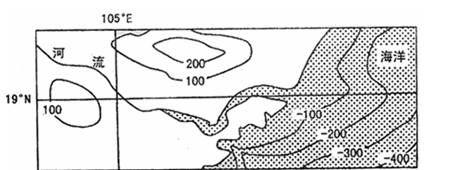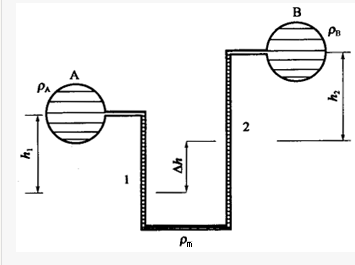问题
选择题
图是某区域等高(深)线示意图。读图回答题。

小题1:图中所示河流河口附近等深线向海洋方向凸出的原因是
A.太平洋板块俯冲到亚欧板块之下形成海沟
B.滥采滥挖珊瑚礁使海水逐年变深
C.河流携带的泥沙淤积使海水逐年变浅
D.填海造陆使海水逐年变浅小题2:近几十年来这种凸向越来越大,对此应采取的根本措施是
A.禁止滥采滥挖珊瑚礁
B.做好流域内的水土保持工作
C.经常使用挖泥船清除泥沙
D.大力发展海水养殖业
答案
小题1:C
小题2:B
题目分析:
小题1:图中所示河流河口附近等深线向海洋方向凸出说明河口附近海水相对较浅,这与河流携带的泥沙淤积密切相关。
小题2:近几十年来这种凸向越来越大,说明河流含沙量大,河流含沙量大与河流中上游植被破外密切相关,因此针对河流含沙量大采取的对此应采取的根本措施是做好流域内的水土保持工作。
点评:本题难度居中,主要借助等深线的判读考查流域发展面临的问题与对策,解答本题目的关键是明确河流河口附近等深线向海洋方向凸出的原因,明确了原因知道了问题,对策就一目了然了。





